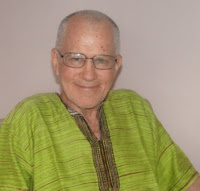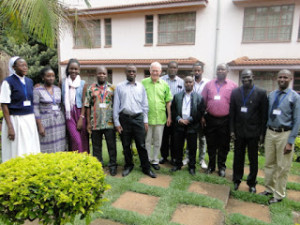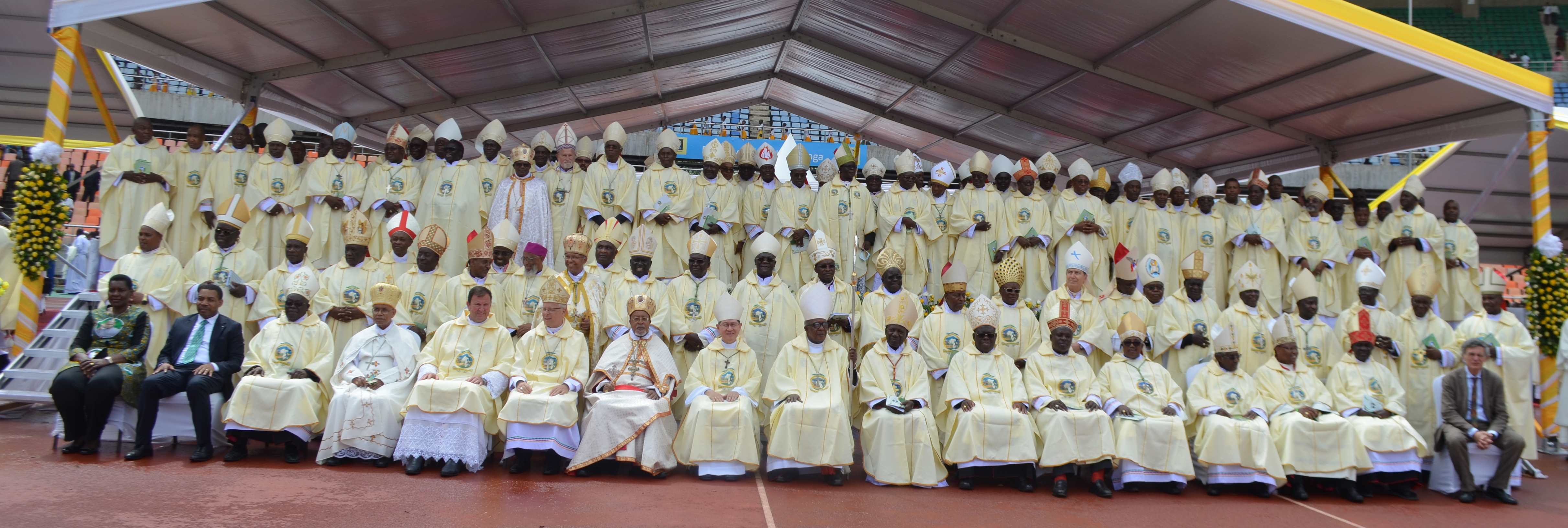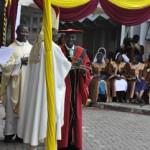

Rev. Fr. Joseph Healey, MM,
Founder of AMECEA Social
Communications Department
Rev. Fr. Joseph Healey, founder of AMECEA Social Communications Department will be commemorating his 50th Anniversary as a Maryknoll Missionary Priest, an event which he plans to celebrate in his native country US in June 2016.
Fr. Healey or Mwana Jumuia (Member of Small Christian Community) as he calls himself is very proud of AMECEA Social Communications Department, which he pioneered in the early days of his priesthood.
He narrates the story of 50 years of pastoral service and communications during an interview with AMECEA Online News
In 1968, AMECEA became the first Regional Conference in Africa to establish Social Communications Department and I am very proud to be part of that establishment. Again in 2016, AMECEA Social Communications Department became the first Regional Social Communications Department to establish an ICT office in the whole of the continent of Africa, an achievement that is worth applauding.
I was ordained on June 11, 1966 and immediately proceeded to study journalism and international communications for two years. I proceeded to East Africa in 1968 where providentially I was appointed by the regional Bishops conference to pioneer the establishment of the department. When the Bishops during the AMECEA Plenary of 1967 said we want to start an office for social communications connected to the general secretariat of AMECEA in Nairobi, they said the best journalism schools in the world are in the US, so let’s ask an American Missionary Society to provide a person. That is how I got involved.

Rev. Fr. Joseph Healey (Green Shirt) in a group photo
with Participants of AMECEA workshop on
ICT held recently in Nairobi
The whole plan was that I would come here, found the AMECEA Social Communication Office; get the office off the ground and then turn it over to the local Church. And that is what I did, 68 to 74, I was in the office for six years. And then after five years in 1973, we said let us look for counterpart training programs so Fr. Joseph Mukwaya from Uganda (who later became a Bishop) who worked at the catholic secretariat of Uganda came in the year 1973 as a counterpart working together, then he took over in 74.
When I established the office I was asked by the Bishops to do a survey in all the five of the AMECEA Countries which included, Kenya, Uganda, Tanzania, Malawi and Zambia in order to assess the need of the local Church and everyone said they needed trainings.
We came up with the conclusion that we have to train at least three individuals in order to get one. This is because you train people for instance the religious sisters in journalism and then their congregations make them a mother general or they are appointed for other duties by their congregations.
We carried a three-Week workshop in all the five countries whereby week one was for Print Journalism, week two for Broadcasting- journalism and week three for audio-visual.
Apart from training, coordination was another major activity carried out by the department. If I was to name one thing that is very successful to AMECEA Social Communications Department since then, is the annual meetings of the National Communications Coordinators from AMECEA member countries that have been going on for 45 years is one of them. It is extraordinary that this has continued till today. The idea of coordination between the AMECEA Countries is very important. Coordination means that the conferences work together to share resources and to exchange ideas.
In my second year at AMECEA that is in 1969 I went to Uganda for six months for the Pope’s visit and we got that scholarship of Blessed Pope Paul VI Communications Scholarship and we have had that for 47 years and it rotates among the AMECEA Countries and institutions.
Challenges at AMECEA
The big challenge we got was that the people trained did not stay in the communications field. Both the Clergy and the religious sisters trained left communications; you had to train three to get one.
In the present scenario, the Church still trains professionals not only in communications but in various fields; however, the trained personnel never get to stay due to a number of reasons among them getting better greener pastures either with the government or NGOs, resulting to a high turnover of staff. However, that is okay because we are providing staff to institutions in the AMECEA countries and hopefully they are taking with them their Catholic Values. We need quality people in the media. We used to give scholarship to local citizens, and we said let us put them under contract after their training to work for the Catholic Church for three years, but some of those bonds were broken and that was very disappointing. But, I think that to get good Catholics in secular media is also important. So I would like to see many Catholics in secular institutions, even though it means that we have to train many more.
Another major challenge that we faced at the time and which I think is a challenge to date is the network of diocesan communicators. We had planned from the beginning that each of the national office would be connected to AMECEA, and in each national office there is a connection with the dioceses. However, the network is not working, communications are quite limited because the responsibilities are often given to priests who have many other responsibilities. The networking with and among the dioceses is still a very big problem which needs to be addressed.
Fear
I am a little nervous when I see public relations taking over what you consider proper communications. In the really sense Public relation is not communications. If AMECEA Social Communications Department changes to Public Relations Office then I would be totally disappointed because the media aspect of it gets lost and we are just trying to sell AMECEA as a product globally. I realize that public relations is important but we have to get the media people in the Catholic Church right because they need to understand the content better.
Recommendation
Fully embrace the digital strategy. Don’t see the dioceses doing well in the digital strategy. We need to go digital, The Church needs to embraces digital technology in its apostolate.
By AMECEA Online News Correspondent, Nairobi

 Previous Post
Previous Post Next Post
Next Post